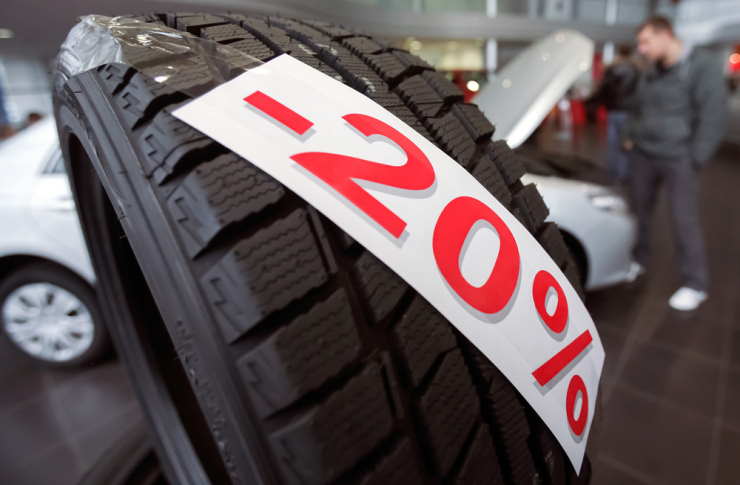Navigating the Best Car Deals: Your Guide to Affordable Vehicle Offers
In today's competitive automotive market, finding the right car at the right price can be a challenging task. Whether you're in the market for a new vehicle or looking to upgrade your current ride, understanding how to navigate car deals can save you thousands of dollars. This comprehensive guide will explore the world of affordable car offers and high-value vehicle deals, providing you with the knowledge to make an informed decision on your next automotive purchase.

What factors contribute to great car deals today?
Several factors influence the availability and quality of car deals in the current market. Economic conditions, manufacturer incentives, dealership inventory levels, and seasonal trends all play a role. For instance, end-of-year sales often yield significant discounts as dealerships aim to clear out older models. Additionally, market competition and overproduction can lead to attractive offers on certain vehicle models. Understanding these factors can help you time your purchase for maximum savings.
How can you identify truly affordable car offers?
Identifying genuinely affordable car offers requires a combination of research and savvy shopping. Start by determining your budget and the type of vehicle that meets your needs. Use online resources to compare prices across different dealerships and platforms. Look for special promotions, cash-back offers, and low-interest financing options. It’s crucial to consider the total cost of ownership, including fuel efficiency, insurance rates, and maintenance costs, rather than just the sticker price. This holistic approach ensures you’re getting a truly affordable deal in the long run.
What are some strategies for negotiating high-value vehicle offers?
Negotiating for high-value vehicle offers is an art that can significantly impact your final purchase price. Begin by arming yourself with knowledge about the vehicle’s fair market value and any current incentives. Be prepared to walk away if the deal doesn’t meet your expectations, as this can often lead to better offers. Consider negotiating on the total price of the vehicle rather than monthly payments, and be aware of add-ons that can inflate the cost. Timing your negotiation towards the end of the month or quarter when salespeople may be more motivated to meet quotas can also work in your favor.
Are there specific seasons or times when car deals are most abundant?
Yes, certain times of the year tend to offer more abundant car deals. The end of the calendar year, typically from October to December, is known for significant discounts as dealerships clear out current year models to make room for new inventory. Holiday weekends such as Memorial Day, Labor Day, and Black Friday often feature special promotions. Additionally, the end of each month can be a good time to shop, as dealerships push to meet sales targets. However, it’s important to note that the best time to buy can vary depending on the specific model and local market conditions.
What unique car buying opportunities exist in the United States?
The United States offers several unique car buying opportunities that savvy shoppers can leverage. Factory-direct programs allow customers to order vehicles directly from manufacturers, often at competitive prices. Certified Pre-Owned (CPO) programs offer near-new vehicles with extended warranties at reduced prices compared to brand new models. Some states also offer tax incentives for purchasing electric or hybrid vehicles, adding to potential savings. Additionally, fleet sales and government auctions can provide access to well-maintained vehicles at below-market prices, though these options may require more research and flexibility in vehicle choice.
How do different financing options impact the overall value of car deals?
| Financing Option | Provider | Key Features | Cost Estimation |
|---|---|---|---|
| Traditional Auto Loan | Banks/Credit Unions | Fixed interest rates, Flexible terms | 3-10% APR |
| Manufacturer Financing | Car Manufacturers | Low or 0% APR promotions, Cash rebates | 0-5% APR |
| Lease | Dealerships | Lower monthly payments, Easy upgrades | Varies, typically higher long-term cost |
| Cash Purchase | N/A | No interest charges, Full ownership | Upfront cost, potential discounts |
Prices, rates, or cost estimates mentioned in this article are based on the latest available information but may change over time. Independent research is advised before making financial decisions.
The financing option you choose can significantly impact the overall value of your car deal. Traditional auto loans from banks or credit unions often offer competitive interest rates and flexible terms. Manufacturer financing can be particularly attractive, with some offers including 0% APR or substantial cash rebates. Leasing may provide lower monthly payments and the ability to drive a new car more frequently, but often results in higher long-term costs. A cash purchase eliminates interest charges and may lead to additional discounts, but requires a substantial upfront investment.
When evaluating financing options, consider the total cost over the life of the loan or lease, not just the monthly payment. Factor in any down payment, interest charges, and potential fees. Some financing deals may come with stringent credit requirements or shorter loan terms, so read the fine print carefully. Remember that negotiating the purchase price before discussing financing can often lead to better overall deals.
In conclusion, finding great car deals requires a combination of timing, research, and negotiation skills. By understanding market trends, leveraging seasonal offers, and carefully considering financing options, you can secure an affordable and high-value vehicle offer that meets your needs and budget. Remember to look beyond the initial price tag and consider the total cost of ownership to ensure you’re getting the best possible deal on your next car purchase.




